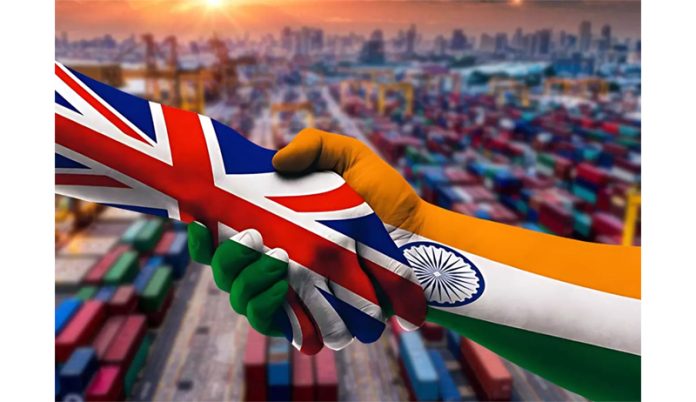NEW DELHI, Jun 14 : The outstanding issues related to the proposed free trade agreement (FTA) between India and the UK will be taken up after the general elections in Britain, a senior government official said on Friday.
The issues which need to be ironed out include duties in sectors like electric vehicles, alcoholic beverages, and services.
“The outstanding issues to seal the deal will be resolved once the general elections in the UK are over,” Additional Secretary in the Department of Commerce L Satya Srinivas told reporters here.
The UK’s general election will be held on July 4.
India and the UK launched talks for an FTA in January 2022 to boost economic ties between the two nations.
There are 26 chapters in the agreement, which include goods, services, investments and intellectual property rights.
The bilateral trade between India and the UK increased to USD 21.34 billion in 2023-24 from 20.36 billion in 2022-23.
On the India-EU trade pact, Srinivas said that the eighth round of talks is scheduled from June 24-28 in Brussels.
Another official said there is a willingness from the EU side to look at India’s perspective in a much more favourable manner now.
“They understood some of our issues from a much better perspective,” he said, adding that the attitude of other countries to look at the China-plus story is also visible when “we are dealing with these countries for FTAs”.
India and the EU officials also held talks on the carbon tax.
The CBAM or carbon tax (a kind of import duty) will come into effect from January 1, 2026, but domestic companies from seven carbon-intensive sectors, including steel, cement, fertiliser, aluminium and hydrocarbon products, would have to share data on carbon emissions with the EU from October 1, 2023.
The official said that companies have started reporting the data.
“With the EU, we are discussing different areas where we need to work out mechanisms under CBAM. We have also set up a carbon platform so carbon pricing per se what will be the basis…What are the other measures in introducing carbon content, how do they account for accreditation or benefits to MSMEs,” he said.
On the proposed free trade agreement with Oman, the official said that talks are progressing on remaining issues and it is moving towards conclusion.
“Oman also has some issues, we also have some reservations about the petrochemicals sector. Indian firms are also doing capacity building in that and we are discussing that,” the official said.
Oman is seeking duty concessions on petrochemical products, such as polypropylene and polyethene, used primarily in the plastics industry.
At present the customs duties on these products are around 7.5 per cent.
Oman is the third largest export destination among the Gulf Cooperation Council (GCC) countries.
The official added that the GCC group of countries are interested in an FTA with India.
GCC is a union of six countries – Saudi Arabia, UAE, Qatar, Kuwait, Oman and Bahrain.
When asked if Saudi Arabia has shown interest in a trade agreement, the official said they want BIT (bilateral investment treaty) along with a trade pact.
India and the UK are also negotiating a BIT.
These investment treaties help in promoting and protecting investments in each other’s countries. The main point of contention involved in this pact is about the mechanism for the settlement of disputes.
Only seven countries have accepted the existing model text treaty, and most of the developed nations have expressed their reservations about the text with regard to provisions like the resolution of disputes.
Economic think tank GTRI (Global Trade Research Initiative) has stated that as India aims to become the third-largest economy, it needs to align its treaties with global investment practices, address the negative perception caused by the mass treaty cancellations and reflect on its negotiation skills.
It has said India has cancelled 77 of its over 80 BITs by 2016, as they didn’t align with its interests. (PTI)


